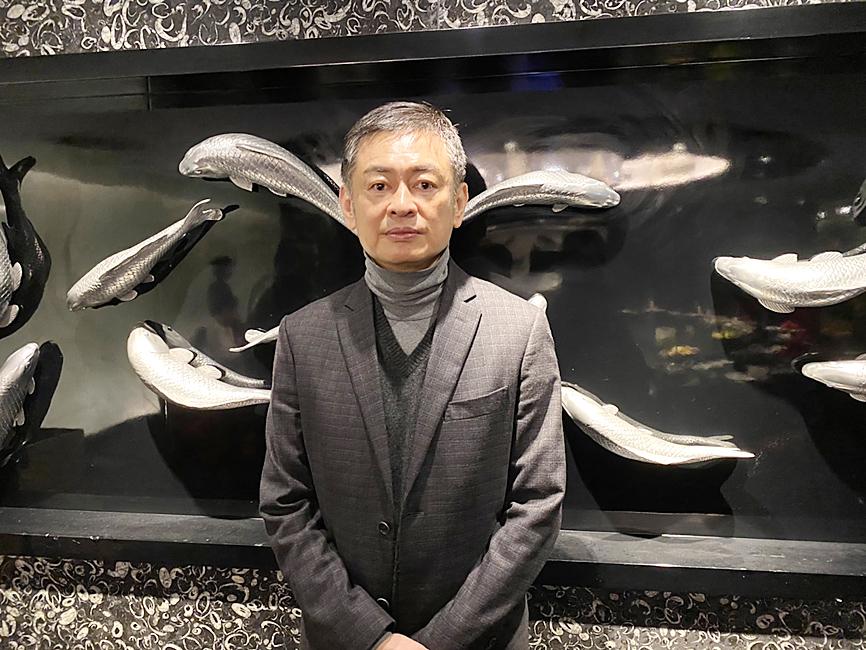Largan Precision Co (大立光), the nation’s biggest supplier of camera lenses, has settled a lengthy litigation battle with smaller rival Ability Opto-Electronics Technology Co (先進光電), according to statements that the companies filed with the Taiwanese Stock Exchange yesterday.
“We have signed a confidential settlement agreement,” Largan said in its statement. “Per the agreement, we will withdraw all litigation against Ability.”
Details of the settlement are not to be disclosed to protect the privacy of individuals involved, the Taichung-based firm added.

Photo: CNA
In 2012 and 2013, Largan sued Ability for allegedly stealing trade secrets.
In 2017, the Intellectual Property Court ruled in Largan’s favor, ordering Ability to pay NT$1.52 billion (US$53.76 million at the current exchange rate) in compensation.
The court’s ruling was upheld on Jan. 28.
Largan hotly pursued the litigation, even requesting the court for the provisional seizure of Ability property on Tuesday last week.
In 2013, Chinese-language magazine Business reported that Largan saw defending its “more than 500” pieces of intellectual property as key to maintaining its position as No. 1 in Taiwan’s opto-electronics market.
Four engineers left Largan for positions at Ability and started filing patents related to production automation that Largan alleged infringed on its intellectual property, leading to the lawsuit.
Over the years, Largan has also sued Samsung Electronics Co, Newmax Technology Co (新鉅科) and HP Inc for patent infringement. Largan settled out of court with all parties, except for HP.
News of the settlement caused the price of Ability shares to jump 10 percent, the maximum daily increase, to NT$42.15.
The price of Largan shares initially dipped NT$65 before recovering and ending the trading day at NT$3,360, slightly lower than the opening price of NT$3,375.
Separately, Largan yesterday posted consolidated revenue of NT$3.21 billion for last month, down 12.44 percent from NT$3.67 billion in February last year.
That represented a monthly decline of 30 percent from NT$4.61 billion in January, as the Lunar New Year holiday reduced the number of working days.

South Korea’s equity benchmark yesterday crossed a new milestone just a month after surpassing the once-unthinkable 5,000 mark as surging global memory demand powers the country’s biggest chipmakers. The KOSPI advanced as much as 2.6 percent to a record 6,123, with Samsung Electronics Co and SK Hynix Inc each gaining more than 2 percent. With the benchmark now up 45 percent this year, South Korea’s stock market capitalization has also moved past France’s, following last month’s overtaking of Germany’s. Long overlooked by foreign funds, despite being undervalued, South Korean stocks have now emerged as clear winners in the global market. The so-called “artificial intelligence

NEW IDENTITY: Known for its software, India has expanded into hardware, with its semiconductor industry growing from US$38bn in 2023 to US$45bn to US$50bn India on Saturday inaugurated its first semiconductor assembly and test facility, a milestone in the government’s push to reduce dependence on foreign chipmakers and stake a claim in a sector dominated by China. Indian Prime Minister Narendra Modi opened US firm Micron Technology Inc’s semiconductor assembly, test and packaging unit in his home state of Gujarat, hailing the “dawn of a new era” for India’s technology ambitions. “When young Indians look back in the future, they will see this decade as the turning point in our tech future,” Modi told the event, which was broadcast on his YouTube channel. The plant would convert

‘SEISMIC SHIFT’: The researcher forecast there would be about 1.1 billion mobile shipments this year, down from 1.26 billion the prior year and erasing years of gains The global smartphone market is expected to contract 12.9 percent this year due to the unprecedented memorychip shortage, marking “a crisis like no other,” researcher International Data Corp (IDC) said. The new forecast, a dramatic revision down from earlier estimates, gives the latest accounting of the ongoing memory crunch that is affecting every corner of the electronics industry. The demand for advanced memory to power artificial intelligence (AI) tasks has drained global supply until well into next year and jeopardizes the business model of many smartphone makers. IDC forecast about 1.1 billion mobile shipments this year, down from 1.26 billion the prior

People stand in a Pokemon store in Tokyo on Thursday. One of the world highest-grossing franchises is celebrated its 30th anniversary yesterday.